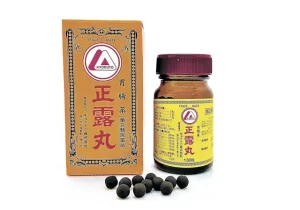Over 1200 youth had heart inflammation after receiving mRNA COVID-19 vaccines
- Gut Bacteria Enzymes Offer Hope for ABO Universal Blood Transfusions
- Well-Known Japanese Medicine Exposed for 30 Years of Data Falsification
- Oregon Reverses Course: From Decriminalization to Recriminalization of Drug Possession
- Why Lecanemab’s Adoption Faces an Uphill Battle in US?
- Yogurt and High LDL Cholesterol: Can You Still Enjoy It?
- WHO Releases Global Influenza Vaccine Market Study in 2024
Over 1200 youth had heart inflammation after receiving mRNA COVID-19 vaccines
Over 1200 youth had heart inflammation after receiving mRNA COVID-19 vaccines. Cardiac inflammatory disease occurs after vaccination, is the mRNA COVID-19 vaccine still safe?
The U.S. Centers for Disease Control and Prevention (CDC) announced on June 23 that the immunization practice advisory committee meeting revealed that more than 1,200 young people in the United States have reported cardioinflammatory diseases (myocarditis or pericarditis) after being vaccinated with Pfizer or Moderna’s COVID-19 vaccine. Case.
Experts from the Immunization Practice Advisory Committee said that the overall data of the two vaccines above show that the probability of cardiac inflammatory disease after vaccination is 12.6 cases per million doses, which is a “rare situation”.
Both Pfizer and Moderna belong to the mRNA COVID-19 vaccine, and the news of the above-mentioned adverse reactions has caused the outside world to worry about the safety of this vaccine based on the new technology. The person in charge of a domestic company engaged in the research and development of mRNA vaccines told The Paper that the relationship between the mRNA COVID-19 vaccine and myocarditis still “needs further observation and clarification of the mechanism.”
U.S. CDC believes that the benefits of COVID-19 vaccination outweigh the risks
According to the information on the safety of the COVID-19 vaccine on the CDC official website of the United States, The Paper reporter mentioned that the COVID-19 vaccine is safe and effective. From December 14, 2020 to June 21, 2021, the United States has received more than 317 million doses of the COVID-19 vaccine.
Regarding the adverse reaction part, the CDC data mentioned that more and more adolescents and young people have reported myocarditis and pericarditis after being vaccinated by COVID-19 . But at present, “the known and potential benefits of COVID-19 vaccination have exceeded Knowing and potential risks, including the possible risks of myocarditis or pericarditis, it is recommended that anyone aged 12 years and above get the COVID-19 vaccine.”
The US CDC also emphasized that it will continue to closely monitor the safety of the COVID-19 vaccine. If scientists find a connection between safety issues and vaccines, the FDA and vaccine manufacturers will work hard to find appropriate solutions to solve specific safety issues.
Regarding suspected adverse reactions such as myocarditis, The Paper reporter contacted Pfizer and Moderna via email, but as of the time of writing, no response was received. The Guardian reported that Pfizer had previously stated that it had not observed a higher incidence of cardiac inflammation than the general population would normally expect. Moderna said that he has known reports of heart inflammation cases after the use of mRNA vaccines, and is working with public health and regulatory agencies to evaluate this issue.
Does the suspected adverse reaction affect the development of the existing mRNA COVID-19 vaccine?
At present, two mRNA COVID-19 vaccines have been approved in the world, from Baintech/Pfizer and Moderna, which also made mRNA technology famous.
In China, Watson Biotech (300142.SZ), which is in the forefront of the development of mRNA COVID-19 vaccines, cooperated with Abbio’s ARCoV COVID-19 vaccine. According to a previous report by China Central Broadcasting Corporation, the vaccine is currently in the process of launching overseas multi-center Phase III clinical trials, including in Mexico, Colombia, Pakistan and other countries.
Fosun Pharma (600196.SH, 02196.HK), through cooperation with the German mRNA COVID-19 vaccine research and development company Bain Tyco, is authorized to conduct clinical trials, listing applications and commercialization in mainland China and Hong Kong, Macao and Taiwan based on its proprietary Vaccine products against the new coronavirus developed by the mRNA technology platform. Previously, on May 9th, Fosun Pharma announced that its holding subsidiary, Fosun Pharmaceutical Industry, planned to invest in a joint venture company with Bytech to realize the localized production and commercialization of mRNA COVID-19 vaccine products.
Cansino Bio (688185.SH, 06185.HK), which has already been approved for the adenovirus COVID-19 vaccine, also has an mRNA vaccine layout. As early as May 20, 2020, CanSinoBio announced that it will jointly develop a vaccine based on mRNA lipid nanoparticle (mRNA-LNP) technology with Precision NanoSystems (PNI) of Canada.
In addition, on December 7, 2020, Zhifei Bio (300122.SZ) announced that it intends to subscribe for 10.189% of the shares of Shenxin Bio with its own funds of 35 million yuan, and Shenxin Bio has the mRNA technology platform, which means the future of Zhifei Bio Or it may be possible to deploy an mRNA COVID-19 vaccine.
Although vaccine development based on mRNA technology is sought after at home and abroad, as a new technology, related research is not always successful. On June 16, the German biotech company CureVac announced that the interim analysis of its candidate COVID-19 vaccine phase III clinical trial showed that the initial effectiveness of the vaccine to prevent COVID-19 diseases was only 47%, and it failed to meet the approval requirements of at least 50%. Statistical goals.
At present, myocarditis and other adverse reactions have become a test that the mRNA COVID-19 vaccine has to face. Will this affect the development of other vaccines with the same technical route in the world? The person in charge of the above-mentioned enterprise believes that despite the negative news abroad, more evidence is needed to prove whether there is a connection, and it is unlikely that the test will be stopped due to choking. Related research should be carried out step by step.
(source:internet, reference only)
Disclaimer of medicaltrend.org
Important Note: The information provided is for informational purposes only and should not be considered as medical advice.



